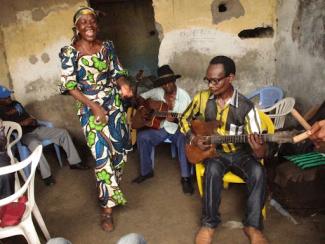
The enslaved Congolese in Cuba brought with them the music and dances of their homeland. With its infectious rhythm and vigorous movements, the rumba was diluted, sanitized, and ultimately transformed into the form we know today, sapped of its rich history and origin.
The blending of African traditions with Spanish colonialism created a unique Afro-Cuban identity. Despite the significant influence of African culture and heritage on Cuban society, the country has a history of attempting to erase Blackness. What happened to the rumba is a prime example.
The Cuban government downplayed the contributions of Afro-Cubans, reinforcing anti-Black ideology. African practices were banned. In 1925, President Gerardo Machado prohibited public performances of music and dance that had African origins.
Rumba changed because of these bans, replacing movements deemed "too sexy" with Son Cubano's influence. The separation of the rumba from its African roots is a clear example of how anti-Blackness has permeated cultural expression.
The deliberate erasure of the African origins of the rumba not only devalues the contributions and experiences of Black people but also serves as a stark reminder of how colonialism and oppression continue to shape our world. Regardless of the anti-Blackness that our creations face, we have to keep doing what we do. The authenticity of our creations will always showcase the power of our culture.